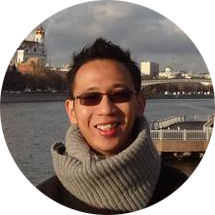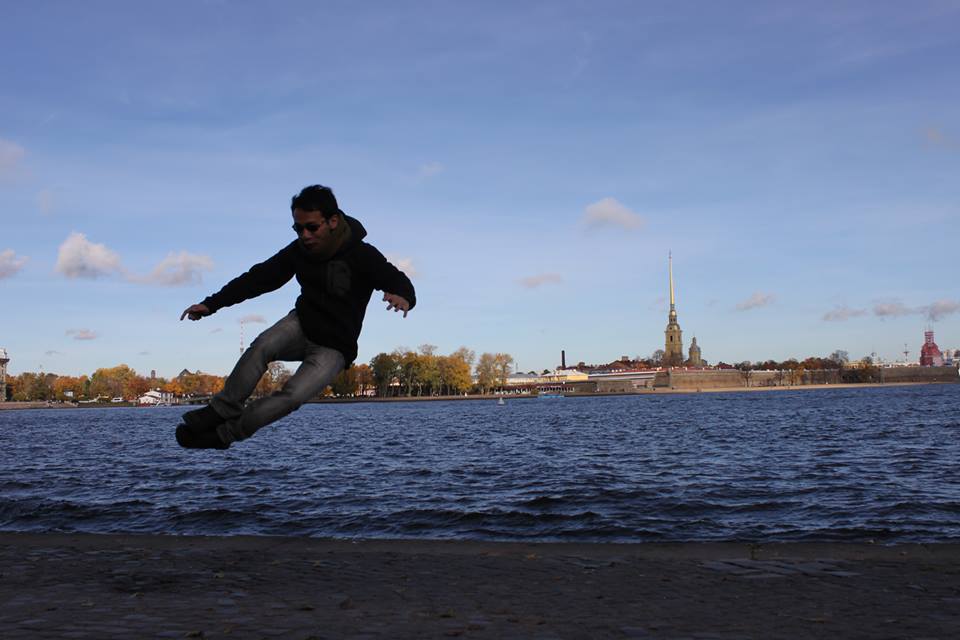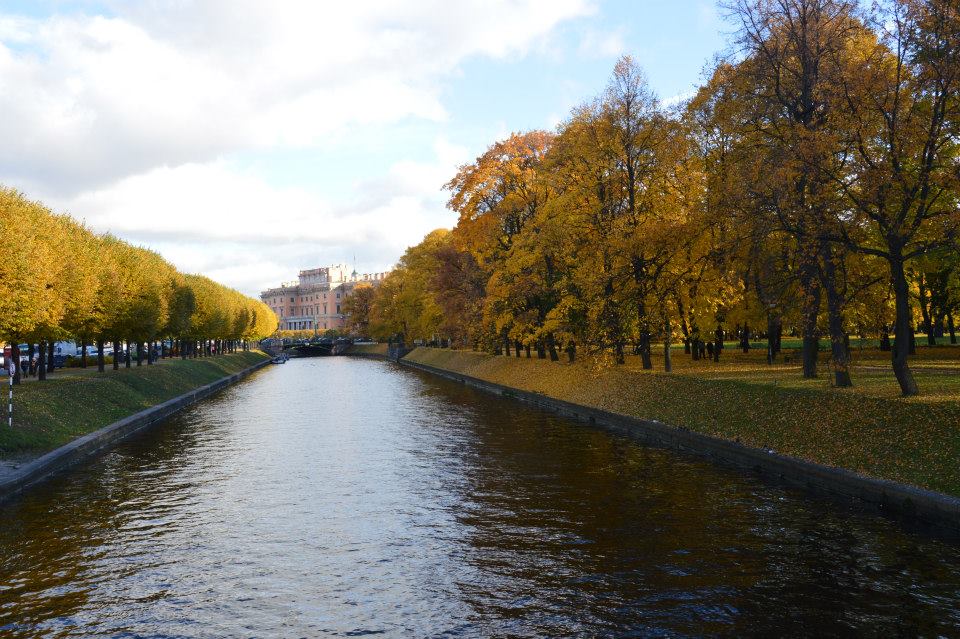Muhammad Hafiz Firdaus Bin Ma’il

Class of 2014
Majoring in Political Science and Corporate Communication
Exchange at Plekhanov Russian University of Economics, Moscow, Russia

When I first told my family and friends that I applied and got my exchange placement in Plekhanov Russian University of Economics, many in fact were surprised and a little apprehensive about my decision. Initially, many were asking me quizzically and gave remarks such as "Wow, why Russia, don't you think it's dangerous?" or "You're going to get yourself killed!" or the best of all was "Are you out of your mind?!" Somehow, apprehension turned into real interests as some requested me to document my travels and keep them updated as to what Moscow and other parts of Russia are like, because one day they would like to visit Russia.
To many of my friends, Moscow may not sound like the perfect exchange location because Russia is not central enough, language is difficult, Russian winter is tough, people are not friendly and you get robbed all the time and that there is really nothing to do there. Hence, before I embarked on my journey to Russia, I reminded myself why I chose Russia – to take the road less travelled and explore and challenge myself to adapt to extreme conditions while on exchange.
Honestly, when quizzed about why Russia, the most common answer that I gave was that International Enterprise Singapore gave us a grant to go on exchange in Moscow. So why not! But of course, there were other important factors and also, this is a chance of a lifetime!
So how did I prepare myself? I was told that it will get very cold, at least about -20 degrees celsius during winter and I was reminded that winter is especially harsh. The most suggested items to be brought were thick winter jackets, leather gloves and heat tech from Uniqlo! Well, I can say that these did really come in handy despite the fact that the winter this year wasn't as cold as they had expected it to be. But still, the winds were strong enough to make the weather very chilly.
I have a penchant for Asian food, so from Singapore I brought along 20 packets of Indomee (highly popular food brought out by most Singaporeans going abroad), 5kg of Rendang meat (vacuum packed and ready to eat whenever!), 2 large packets of 3-in-1 Milo sachets, a bottle of anchovies and roasted peanuts glazed with chili, 4 packets of ready to make asian sauces and lastly, the trump card – mini rice cooker! Phew, I was really well prepared for the trip.
I was so lucky to have brought along a spare phone. My spare Nokia phone screen (yes, NOKIA) cracked and broke into pieces when I accidentally dropped it in the McDonald's near my dormitory. Somehow my decision to bring along two phones really paid off! Then again, having two phones will allow you to still use your Singapore number and the other is for your local Russian mobile number.
It took a really long time to sort out our visa issues because of the complicated bureaucracy that made the process even more difficult. We had to wait until early August before we could receive our visa despite us applying for it in May. Basically, the process invovled the Russian university applying to the Russian Ministry of Foreign Affairs to apply on behalf of us. Then the Ministry will send an invitation for us to apply for the visa in Singapore. Somehow, there was a delay, unknown to all of us and that made us even more anxious.

I find learning the Russian language to be the most important part of the preparation because having a headstart before reaching Russia will just allow us to get around easier in the initial stages of adapting to the local life. Also, because the signs and metro stations are labelled in Russian, and since the metro will be your most commonly used mode of transportation, knowing the station names will go a long way.
The first shock that we received was when we were shouted at while waiting for our baggage at the airport in Russia. We couldn't understand anything and were a little bit shaken by the welcome experience. Next, we realised that no one actually smiled, not even the customs officer that we greeted upon our arrival. Everyone looked as if they were busy, serious or really don't care about what's happening around them. When we got to the metro, everyone was jostling and pushed to enter the train. Not only that, the door didn't have any sensor at all, and so it just closes on you. That was one of the most memorable welcome experience we had.
Soon, when we had to start grocery shopping, the ladies at the counter were not very pleasant looking at all. They frown and spoke everything in Russian (which was ok) but also, when we smiled, she stared and what they did next really perturbed us. She literally threw the change at us and moved on to the next customer. Similarly, in cafes or restaurants, the waiter or waitress doesn't come to you to ask, they have very serious faces and are not very attentive or patient. So basically, the service industry is still wanting, lacking the warmth and professionalism that I experienced when I was in other countries.
A compulsory course we had to take was 'Doing Business in Russia' provided us with the answers that we were looking for to the questions "Why are service standards poor in general?" and "Why don't people smile?". Generally, Russians are warm on the inside, it is just that unlike the eastern Europeans, they don't smile at strangers because it is considered weird. On top of that, smiling is somehow representative of the fact that you are happy which meant that you have a better life than others. Rule of the thumb is that one shouldn't show it. Finally, with regard to the service standards, the explanation given was that the cashiers believe that the supermarket belongs to them and so they should be respected, hence it is the opposite, where customer is not the king, but they are. That is their way of showing power.
Well, we did face many administrative challenges – last minute cancellation of modules, timetable of classes only given during the first week of class (so there is a possible clash of modules), and we were only informed of the exam timetable 2 weeks before the exam itself. There was no proper system in place and everything was to be recorded on paper, no online portals like elearn, ontrac or oasis. The cancelled modules caused us a bit of a problem because we needed those modules to map back to SMU and luckily enough, we found suitable replacements just in time.

Russia is seen as a Motherland, full of many natural environments, extreme cold temperatures, amalgamation of many different cultures and religion and most importantly, Russia is known for its bureaucracy and corruption. Hence, as a political science student, I am living my dream to experience first hand within the boundaries of one of the most powerful nations in the world and exploring the post-Soviet era that has brought a different dimension in terms of world politics. It is a totally different system compared to the small and comfortable Singapore. I am glad to have chosen Russia because I have learnt a great deal in terms of culture, knowledge, ideology and achieved my aim that I have set at the start of the journey. Truth be told, I felt quite safe walking on the streets of Moscow, I didn't experience anything that was adverse.
As an advice for those applying for the future exchange semesters abroad, this is your one chance to get out of your comfort zone and explore a different part of the world that you wouldn't usually go to for a trip!